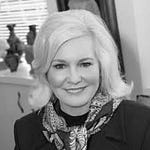Welcome! My name is Lyric Hughes Hale, editor-in-chief of econVue & host of The Hale Report.
My guest for our 57th episode is Yohan Iddawela, data scientist and LSE-trained economist. Yohan brings a wealth of experience from his time at the World Bank and his current research at the Asian Development Bank in Manila. An Australian who has lived around the world, Yohan offers unique insights into the intersection of geospatial data science and economics.
Technology is revolutionizing economics. Satellites now encircle the earth, collecting real-time data that can illuminate economic activity without the usual lag. Many economists have yet to grasp the full potential of this data. Yohan and his research bridge this gap at a critical time, leveraging artificial intelligence to analyze the vast amounts of information being amassed.
Economics is often pretty slow to adopt technological breakthroughs, particularly in the EO or Earth Observation space. –Yohan Iddawela (42:05)
I became intrigued with Yohan’s work after discovering him on X/Twitter, and consider him to be an essential follow. My interest in location-linked data dates back to the 1990s when I published an internet newsletter on China. Collaborating with Griffith University in Brisbane, we linked GPS information with granular sales data in Shanghai to understand the market for infant formula—a level of insight unavailable to China researchers today.
Geospatial Data Overcomes Barriers
Fortunately, EO and satellites transcend political boundaries. However, as satellite technology has advanced, so has the world. For instance, researchers once used NTL (night time lighting) to estimate GDP in places like North Korea. Today, new LED lighting technology complicates that relationship, as Yohan explains in our podcast. He also delves into other satellite technologies such as daytime imagery, and SAR (Synthetic Aperture Radar) which captures images even under cloudy or polluted conditions.
Subnational economic data is especially hard to obtain in developing countries, but satellite imagery is invaluable for accurate analysis:
Use Cases in Economics
Just a few instances: Assessing agriculture, climate change, poverty, trade flows, immigration, infrastructure quality, natural disasters, war damage, marine trash, methane levels, deforestation, dark shipping, and many other uses.
Given the difficulty of gathering data in countries with autocratic governments, the ability to observe changes that are taking place behind the curtain can be critical to understanding the global economy. Not surprisingly, much of this innovation is being driven by the finance and investment industry.
Topics Discussed
GDP Data And Spatial Analysis
Daytime Satellite Imagery And Poverty Mapping
Challenges to Adoption In Economics
Accessing Geospatial Data - Resources
Environmental Data And Economic Implications
Recent Research Highlights
War Damage And Environmental Monitoring
Follow our Guest
Yohan Iddawela has a terrific publication on Substack The Spatial Edge. In this podcast, and in his writings, you’ll find invaluable insights into understanding our Big Blue Planet.
Links to papers discussed on this podcast:
How Much Should We Trust the Dictator’s Growth Estimates? (Journal of Political Economy University of Chicago Press)
Stanford AI Lab's paper on predicting poverty using daytime and nightlights (Science)
Asian Development Bank’s poverty mapping work (building off Stanford AI Lab) (ADB Publications)
Meta's Relative Wealth Index (Proceedings of the Natinal Academy of Sciences)
Paper on environmental inequality (Nature Cities)
Study on cool pavements (Environmental Research Communications)
Paper on using SAR to estimate damages to buildings (arxiv.org)
📍Chicago
With thanks to all the people behind the scenes who make EconVue possible, especially our producer, Sam Fu.

















